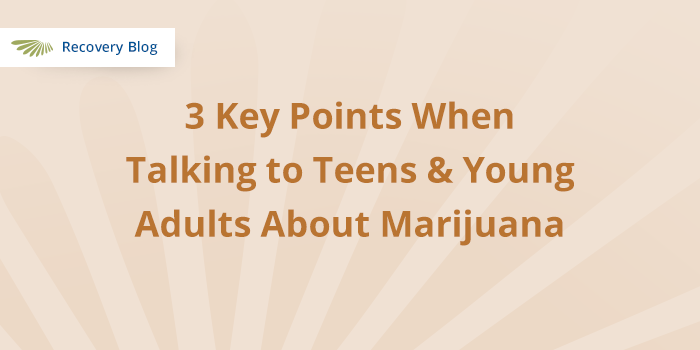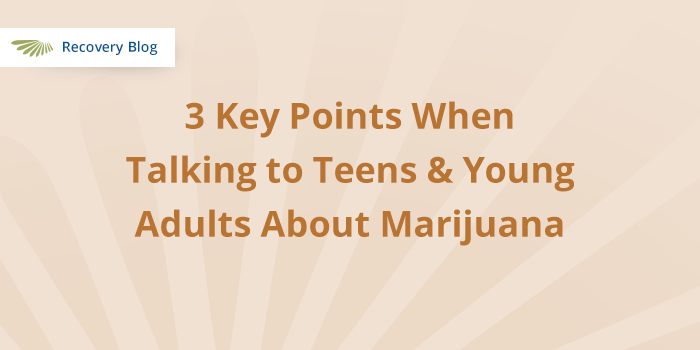12-Steps Program vs. Smart Recovery: Choosing What Fits
Treatment for substance use disorder comes in many forms and understanding the options available...
2 min read
By: Russ Kallina on May 20, 2016


Many families will find themselves at some point engaged in a conversation with their teenagers and young adults about marijuana. Often, parents and other loved ones are told by their younger relatives multiple reasons why smoking “pot” is OK. “It’s not that bad for me”, “Everyone is doing it”, “It is better than drinking”, “It is legal now” and the infamous “You did it when you were young.”
So how are concerned family members to respond to these comments? The first step is to understand the current facts about cannabis use. A good summary of the current state of knowledge is contained in a recent article here.
There are 3 key points from the article that can be helpful for you in talking with your teenager or young adult that is using or thinking of using cannabis.

With the societal shift in attitude towards cannabis use, many people are given a false impression that smoking marijuana is harmless.
Research studies have proven that the younger a person starts using a substance, the more likely they are to develop an addiction to it.
Also with the more widespread use of cannabis, the rates of cannabis addiction and cannabis related motor vehicle accidents are on the rise.
Producers are increasing the potency of marijuana to have a stronger effect. This will only accelerate as cannabis grows into a multi-billion-dollar industry. Just think about what smoking tobacco was like before “big tobacco” brought the science of chemistry and marketing to full effect. Synthetic cannabinoids are on the rise and are more potent than ever. We are only now starting to understand how these new formulations affect the human brain, but we already know that they are increasing the rates of addiction and other medical complications of use.
Young people’s brains are still undergoing a significant amount of maturation. The nerve cells in the brain are still growing, being moved around, and changing connections at an amazing rate. Brains are not static organs. They change in response to stresses and certainly to foreign chemicals.
We are now learning that cannabis, and especially synthetic cannabinoids, have a profound effect on the neuronal changes that are happening in the young person’s brain. The short term consequences are decreased motivation, apathy, decrease in concentration and memory and potentially serious psychiatric disorders. However, the long term effects are still unclear. We do know that cannabis impedes the maturation process in young brains.
So when you are talking to your young loved ones about marijuana remember these 3 points:
Treatment for substance use disorder comes in many forms and understanding the options available...
There are currently eleven states in the US where marijuana is legal for recreational use, and...
Loving, healthy relationships in and of themselves have ups and downs. Some of those down times can...